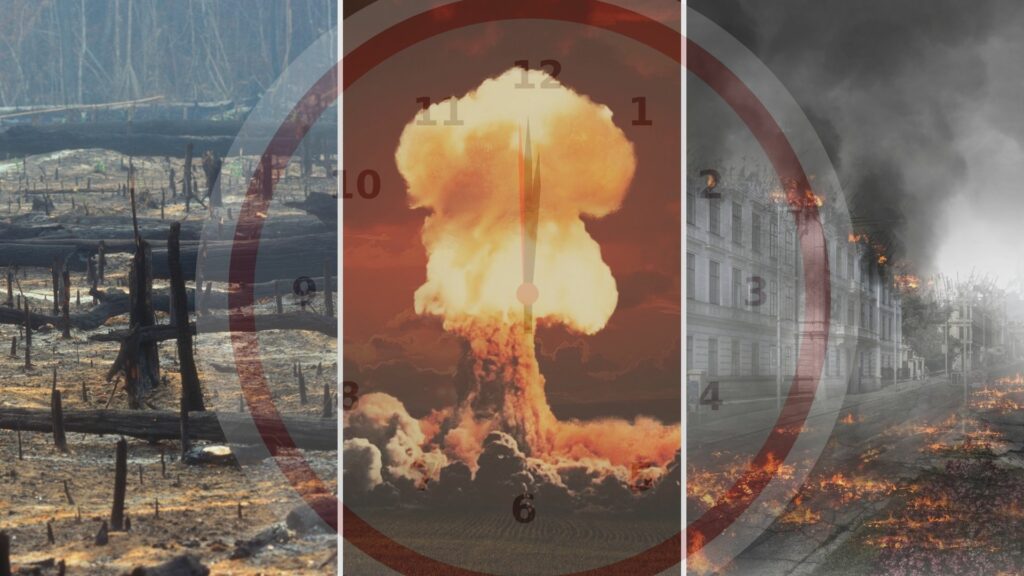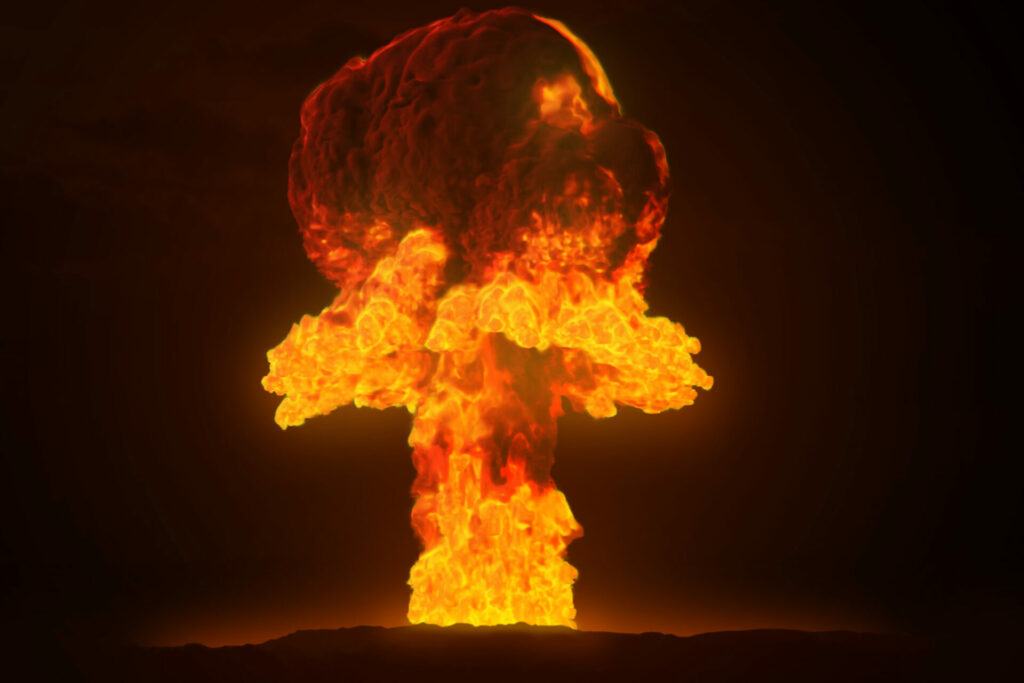Just to drive the nail a smidge deeper into the coffin of any festive mood that might be lingering this late in January, the Bulletin of Atomic Scientists publishes its annual Doomsday Clock to indicate how close humanity is to existential catastrophe.
The outlook was never positive – for a clock face that could in theory indicate any time within a 12-hour span, the hands have always been uncomfortably close to the fateful midnight, presumably when all hell would break loose. At best the hour was 17 minutes to midnight, in the relative geopolitical calm of 1991.
Now humanity is closer than it has ever been to civilisation-ending destruction. The conflict in Ukraine has brought Russia and NATO to the brink of nuclear warfare, the similarities to the Cold War tensions being painfully obvious.
Or are they? At several points in the stand-off between the US and the Soviet Union, tensions rose to such a level that the smallest of human errors could have triggered a nuclear assault that would have wiped out much of humanity. In the West, fear of a nuclear outbreak was not only justified but keenly felt by many citizens.
Is the same true today or have we become desensitised to living in the shadow of armageddon? The chance of nuclear escalation is arguably higher now than it has ever been and in addition, societies around the world face climate breakdown. The effects of this can be seen already though the full severity of these crises has yet to play out.
And yet we remain as hooked on fossil fuels as ever and persist with the behaviour and economic structures that got us here. Moreover, the Ukraine conflict – not just an attack on Ukraine but by extension, a confrontation between the historic rivals of East and West – is moving further from negotiations that could defuse the threat.
With his 2016 documentary of the same name, Adam Curtis popularised the term hypernormalisation to describe the disconnect between complex societies and reality. What should be exceptional and terrifying circumstances take place constantly, to the point that we live in perpetual peril. Yet rather than back away from the danger or try to remedy the problems, we accept it as normal.
The Doomsday Clock isn't the brainchild of some arcane conspiracists trying to sow widespread panic – it is viewed by intellectuals and academic experts as a very real representation of mankind's prospects. How much longer can we ignore it?
Let @Orlando_tbt know.
Belgium in Brief is a free daily roundup of the top stories to get you through your coffee break conversations. To receive it straight to your inbox every day, sign up below:
1. No tanks included in Belgium's latest aid package to Ukraine
Belgium's Defence Minister Ludivine Dedonder (PS) will propose sending further "substantial aid" to the Ukrainian army. Dedonder will make an official proposal to the Federal Government on Friday but has indicated that tanks will not be included in the aid as Belgium's own defence stocks are limited. Read more.
2. 'A time of unprecedented danger': Doomsday Clock moved 10 seconds closer to midnight
The Bulletin of the Atomic Scientists moved its infamous Doomsday Clock forward by ten seconds on Tuesday to 90 seconds to midnight, and warned that humanity is now "the closest to global catastrophe it has ever been". Read more.
3. Compulsory exam for Belgian citizenship proposed by Flemish party
The Flemish Christian-democratic CD&V party has tabled a bill which would require people to take a 'nationality exam' before they can obtain Belgian nationality. Read more.
4. All Belgians entitled to bicycle allowance for commute
All employees who cycle to work will soon be entitled to a bicycle compensation of €0.27 per kilometre of their commute from 1 May 2023, following an agreement between trade unions and employer organisations in the National Labour Council (NAR). Read more.
5. Biggest 'sports entertainment' park in Europe to open in Belgium
What is expected to be the biggest entertainment sports theme park in Europe will open this spring in Hasselt, Limburg, cramming more than fifty sports on 3,500 square metres. Read more.
6. Brussels has seen only 28 hours of sunshine in January
Brussels has had only 28 hours and four minutes of sunlight in 2023 so far, and the weather forecast doesn't look much brighter for the rest of January, the Meteorology Service's latest data shows. Read more.
7. Hidden Belgium: The Schaerbeek street named after the fastest man alive
‘Jenatzy Shot Dead,’ ran the headline in The New York Times on 9 December 1913. ‘Famous Belgian ‘Red Devil’ Auto Racer Killed in a Hunting Accident’. Read more.


